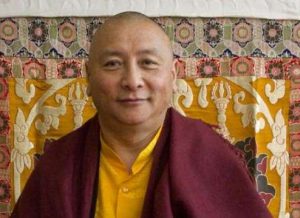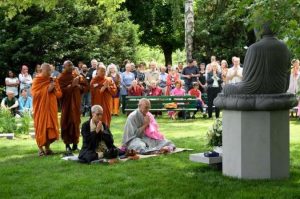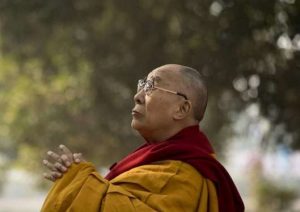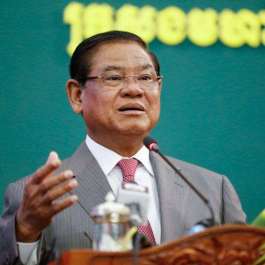One of the most vibrant and exciting events contemporary Buddhism offers is its film festivals, which usually take place annually and have for years driven spiritual creativity and thought-provoking journalism, filmmaking, and artistic expression in the global Buddhist community. One of the groups that the Robert H. N. Ho Family Foundation has supported in the past is our friends at the International Buddhist Film Foundation (London and Hong Kong, 2012). We went to one of the festival of a different organization – Buddhist Film Festival Europe – in October 2011. This particular occasion was held in beautiful Amsterdam, and in the wake of the horrific earthquake and tsunami in north Japan that year, the theme was appropriately an exploration of Japanese spirituality and Japanese ways of grappling with destruction and heartbreak.
The nuclear issue was also brought up in a series of films, both old and new, with a range of movies about Hiroshima and Nagasaki, including “Black Rain,” “White Light/Black Rain” and “The Mushroom Club”). Other movies concerning Japanese religious culture included (“Peace,” “Abraxas,” “Shugendo Now,” “Inland Sea,” and “Dream Window: Reflections on the Japanese Garden.”
The mere fact that Osamu Tezuka’s “Buddha” was shown in Amsterdam before anywhere else in Europe is telling of the shifts and changes occurring in contemporary European Buddhism. Just as The Hague (Den Haag) is the seat of the International Court of Justice and the International Criminal Court, is it fair to say that Amsterdam is rapidly building a reputation of being a centre for Western Buddhism? There are no certain answers presently, but that this question is being posed at all is perhaps telling.
What was also very special was the European premiere of Osamu Tezuka’s Buddha. The Red Desert is the first in a trilogy that brings to animated life the epic, bawdy, violent, fourth wall-breaking manga of the master of Japanese graphic novels, and produced by Warner Brothers Japan.
We only regret that we could not see every single movie – for we would have quite liked to – but there are many more movies left to enjoy that will enrich dramatically the artistic life of Buddhists all around the world. Below are only several of the films we managed to catch at Amsterdam.
Reviews
Mindful Mischief: At the Buddhist Film Festival Europe 2011, Amsterdam
Osamu Tezuka’s “Buddha: The Red Desert”
Abraxas: God and Satan
Memories of a Mad Sage: Crazy Wisdom
Dutch and Anglophone Buddhism
The BFFE highlights not only the cosmopolitanism of Amsterdam (it is hosting a Buddhist event) but also the cosmopolitanism of Buddhism (a Buddhist event is being hosted in Amsterdam). The mutual benefit to both cultures and civilizations could not be more obvious. Our Dutch friend, who accompanied us to a few of the movies, observed that while the majority of the attendees and recurring members of the BFFE and BFF seem to be Dutch or multicultural denizens of Amsterdam, the programs, subtitles, and even openings of the events are all catered for English speakers.
In this sense the BFFE is natively Dutch but attempting to reach out to a global audience. We can only wish them the best, because the media publicity was not as coordinated as it could have been: the awkward formatting of the English site as opposed to its Dutch counterpart was once a valid example, but recent visits have alerted us to marked improvements. In any case, this is a technical flaw, not a conceptual one. If we had any say in the matter, any cooperation between our publication, the BFF and the BFFE could lead to truly inspiring collaborative projects, especially when addressing Chinese Buddhism and its place in contemporary culture. But that is another story for another day.
Click here to visit the website of Buddhist Film Festival Europe.
















